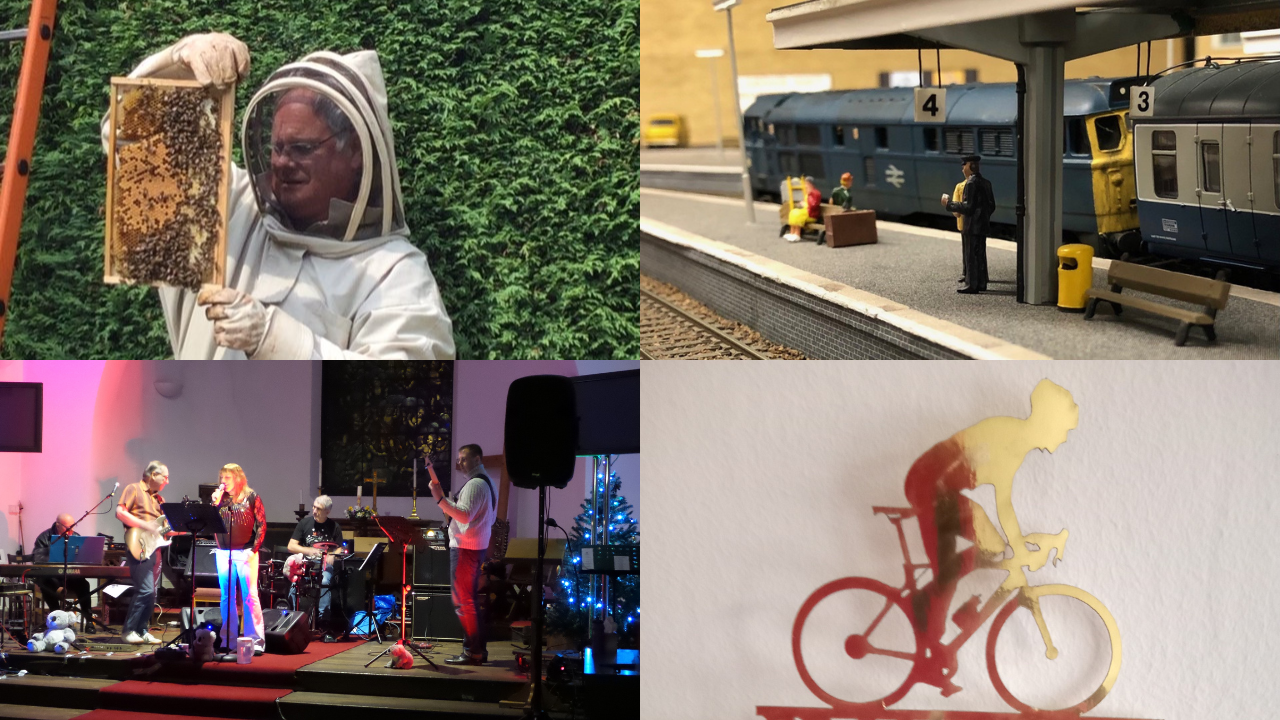
This month we have been looking at the theme of Healthy People as we implement the Restored Health aspect of our vision: To be Bearers of Life.
It is important to remember that the call to ‘love your neighbour as yourself’ implies that we take care of ourselves. Why? Because as God says to us, "I have called you by name, you are mine. Because you are precious in my sight and honoured and I love you." (Isaiah 43.1,4).
To honour God's call in our lives, we need to ensure, as far as possible and in our control, that we are healthy in body, mind, and spirit. If we are to be, and to remain, resourced, and energised for ministry, it is essential to make time for study, rest, and recreation. The most important vocation is to be and to become the one God has called us to be.
The research into the benefits of hobbies and leisure activities has been numerous. A recent study from UCL found that having a hobby is linked to fewer depressive symptoms and high levels of happiness.
Many of our clergy take time away from their church duties to engage in hobbies which benefit their minds, bodies, and spirits.
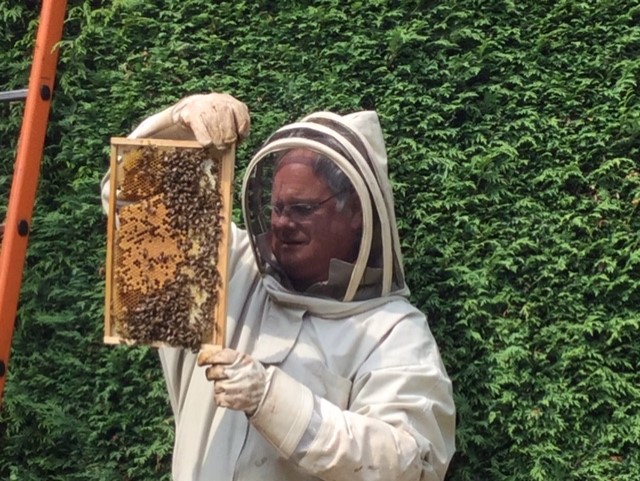
The Revd Allan Scrivener beekeeping.
Both the Revd George Heighton (Vicar of Brailes and Rector of Sutton-under-Brailes, Priest-in-Charge of Tysoe, Oxhill and Whatcote) and the Revd Allan Scrivener (clergy at St George's, Rugby) are beekeepers. George started beekeeping after a visit to Devon with his family. They joined a local beekeeper’s training session and soon after started beekeeping themselves. They currently have 3 colonies, and, in the summer, they grow to around 50,000 workers and one queen in each. Allan has been beekeeping for over 45 years. He says, “there are times when you can feel so stressed and working with the bees is so calming and retunes one to the natural cycle of life enjoyed by another species. They are not selfish, greedy, or territorial, but share the natural world with us. Bees empower you to look to the natural world with eyes attuned to the rhythm of the Creator and heart full of thankfulness for the joys with which they enrich life.”
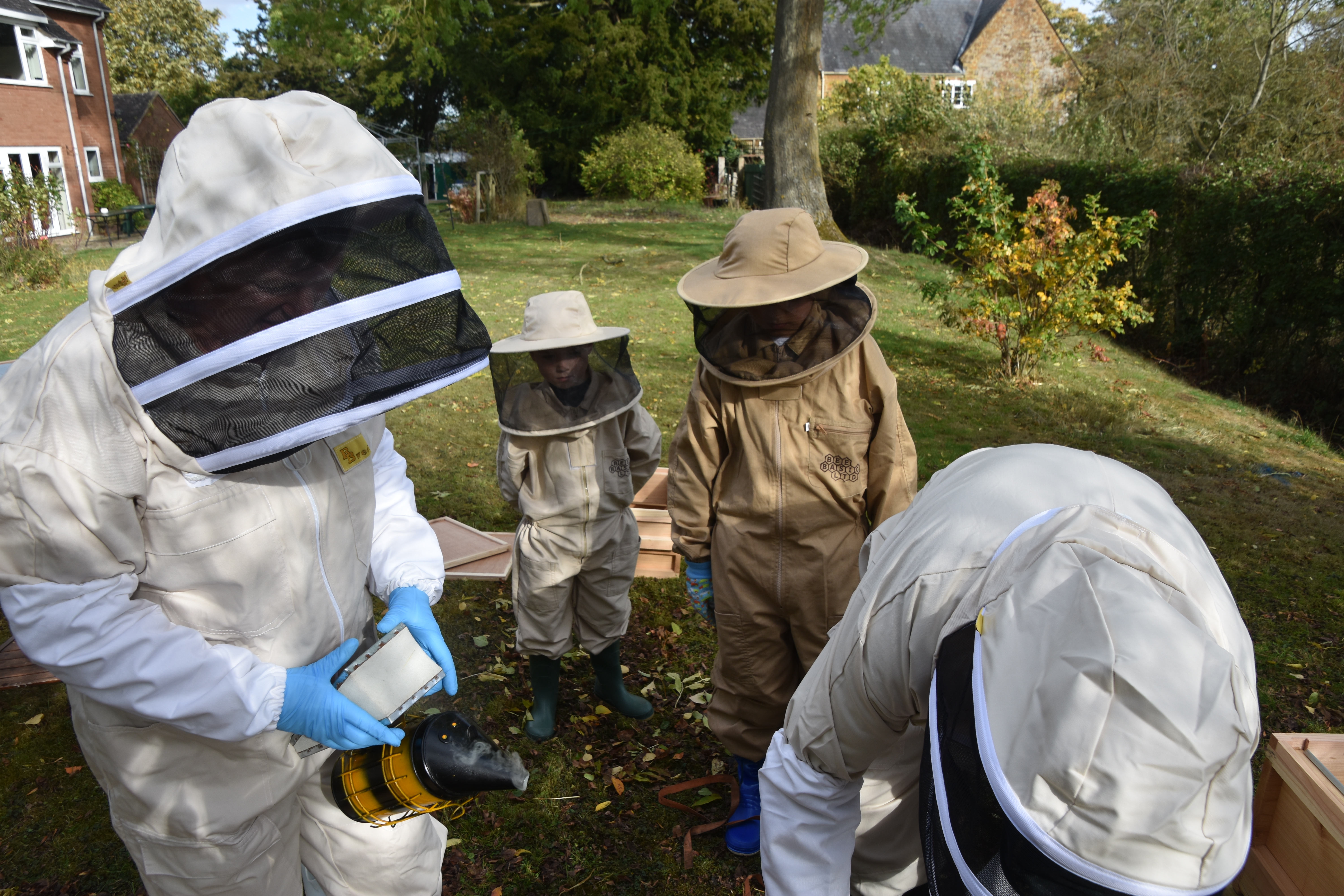
The Revd George Heighton beekeeping
The Revd John Horton (clergy at St Peter's, Wellesbourne) has two main hobbies, gardening, and writing. He says, “working in the garden, in whatever season, is a great opportunity to unwind, get some exercise and fresh air and there are jobs one might do early in the morning, during a spare hour or in the afternoon and evening.” He also notes the benefits of having an allotment as it “keeps us in veg throughout the year - gooseberries, raspberries and beans can all be frozen whilst potatoes and onions store and keep us through the autumn and into the following summer too. It is lovely to eat fresh vegetables - the taste is so different from food from a supermarket.” When it is too wet or cold to garden, John loves to write. His first book, based on his parents' wartime letters was published in 2022 and is called, 'Behind the Wire: A Prisoner of War in Nazi Germany'. John has recently found out that the book will be featured by the National Archives as part of their library display in their forthcoming 'Great Escapes' event.
Keeping active and exercising regularly is vital for maintaining a healthy lifestyle. However, there are many ways to do this. The Revd Richard Moore (curate at St Nicholas, Kenilworth) has recently started attending a calisthenics class. Calisthenics is a form of strength training that uses body weight as resistance. Richard says attending the classes has been extremely beneficial to his wellbeing and “completes the trinity of mind, body, and spirit”. He adds that “there is the discipline of following a routine and sticking with it. The diary commitment means that I can say ‘no’ to other stuff on a Thursday night, which is helpful when in ministry where there is a tendency as a priest to never say no to anything.”
The Revd Canon Edmund Newey (Rector at St Andrew's, Rugby) keeps fit by fellrunning. He states that his love of fellrunning began at the age of 38, when he finally had to embrace the reality of middle-age. He had been a keen fell walker and cross-country runner for many years and it took him three decades to combine the two. Downhill running is his favourite, noting that some call it ‘flying without wings’. He says, “Taking up fell running has been a blessing in all sorts of ways, but three stand out. First, it makes me breathe deeply - literally and metaphorically; secondly, it helps me come to terms with the ageing process - I'm now twenty-five minutes slower round the Fairfield Horseshoe than a decade ago, but the joy remains undimmed; and thirdly, it's a great way of channelling the competitive instinct, for which ordained life probably doesn't have many healthy outlets!”
Cycling is the Revd Jeremy Bevan’s (curate at St Barbara's, Earlsdon) favourite form of exercise. He has been cycling for all his life, and in 2013 he joined the Earlsdon Wheelers, a group in the parish where he is a curate. Jeremy credits cycling with getting him through his BAP in the summer of 2020. At that time, he was working tirelessly as a civil servant, advising employers and workers on how to keep their workplaces safe during covid. He says “I would cycle around a deserted Warwick University campus in the evenings, trying to avoid the geese sunning themselves on the campus roads. Being on the bike helped me 'switch off' after frantically busy days, gave me space to pray, and get my thoughts straight ahead of the interview process.” Two years later, when he was ordained, Jeremy’s cycling community were there to celebrate with him; “my Wheelers buddies secretly organised a ride to celebrate. All unsuspecting, I headed out with them to a cafe at the parish church in Knowle, near Solihull, a frequent destination with fabulous home-made cakes, and excellent value. About 25 cyclists were gathered there, and the church catering team produced some wonderful cakes, including one with a decoration with the words ‘from your Earlsdon Wheelers flock’ I duly blessed the riders, and continue to value their company, as well as the exercise a regular(ish) ride out provides.”
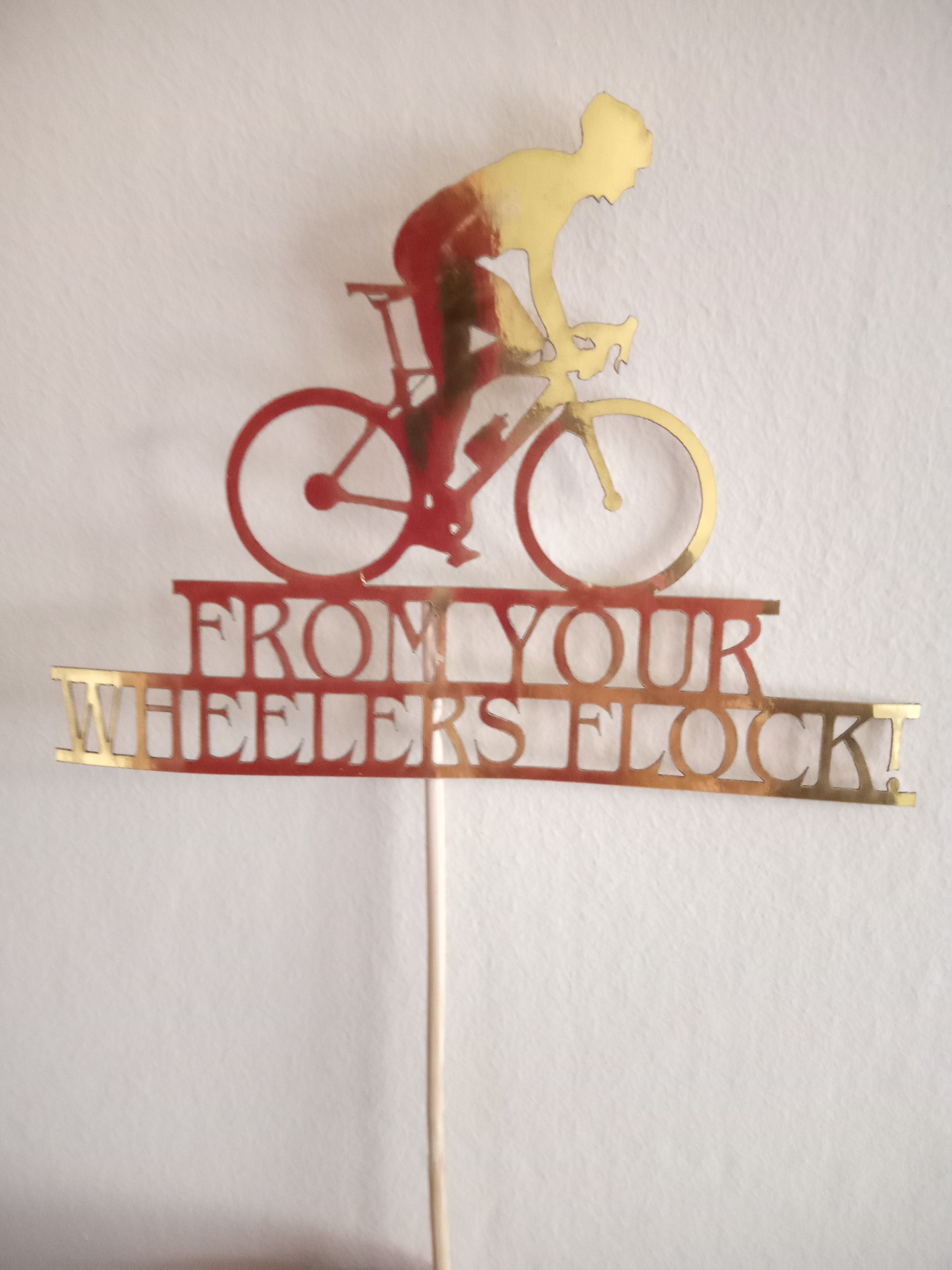
The Revd Joanna Joyce (Vicar at St Andrew's, Eastern Green) also emphasises the benefit of community in hobbies. "I think getting out of church and meeting others is really important” she says “not just because it’s good for us, but because we can’t tell others to be missional and invite friends to church events if all the only people as clergy we see are church members. Getting out of church keeps us grounded in the real world.” Joanna has been part of a local ladies running club, This Girl Runs, for many years. She also enjoys dog training and is now in gold class. “I have just started canicross (cross country running with the dog in harness) which combines both things and has been a great way of meeting new people and getting fitter.”
Not all hobbies involve leaving the house. The loft is the Revd Patrick Taylor’s (Vicar of Holy Trinity Stratford) place of calm as it is where he houses his extensive model railway. Building the railway is a great way to destress and escape from the demands of life for a few hours.
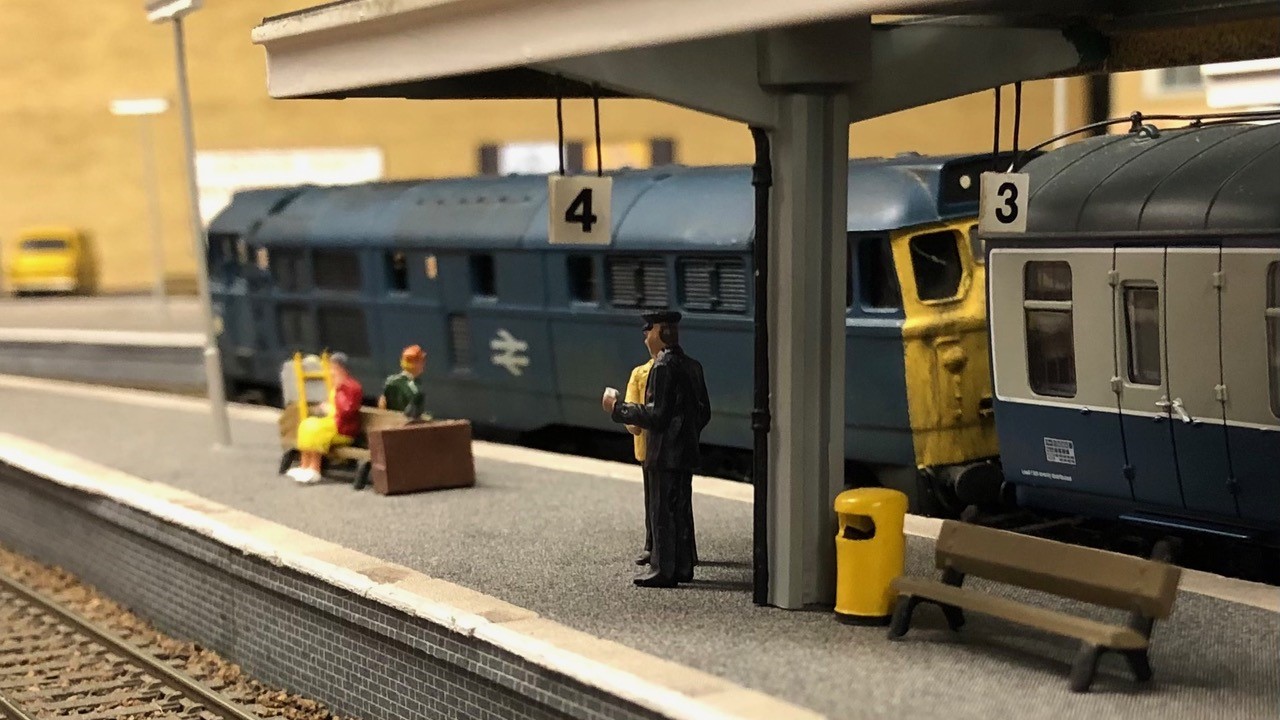
In contrast, the Revd Pam Howell’s (Vicar at All Saints, Coventry) hobby involves her performing in front of hundreds of people as she is lead singer of a rock band called The Koalas. Pam says being in a rock band brings benefits to her ministry; “it helps with sung worship, also my preparedness to make a fool of myself, and also enabling empathy with people's emotions.”
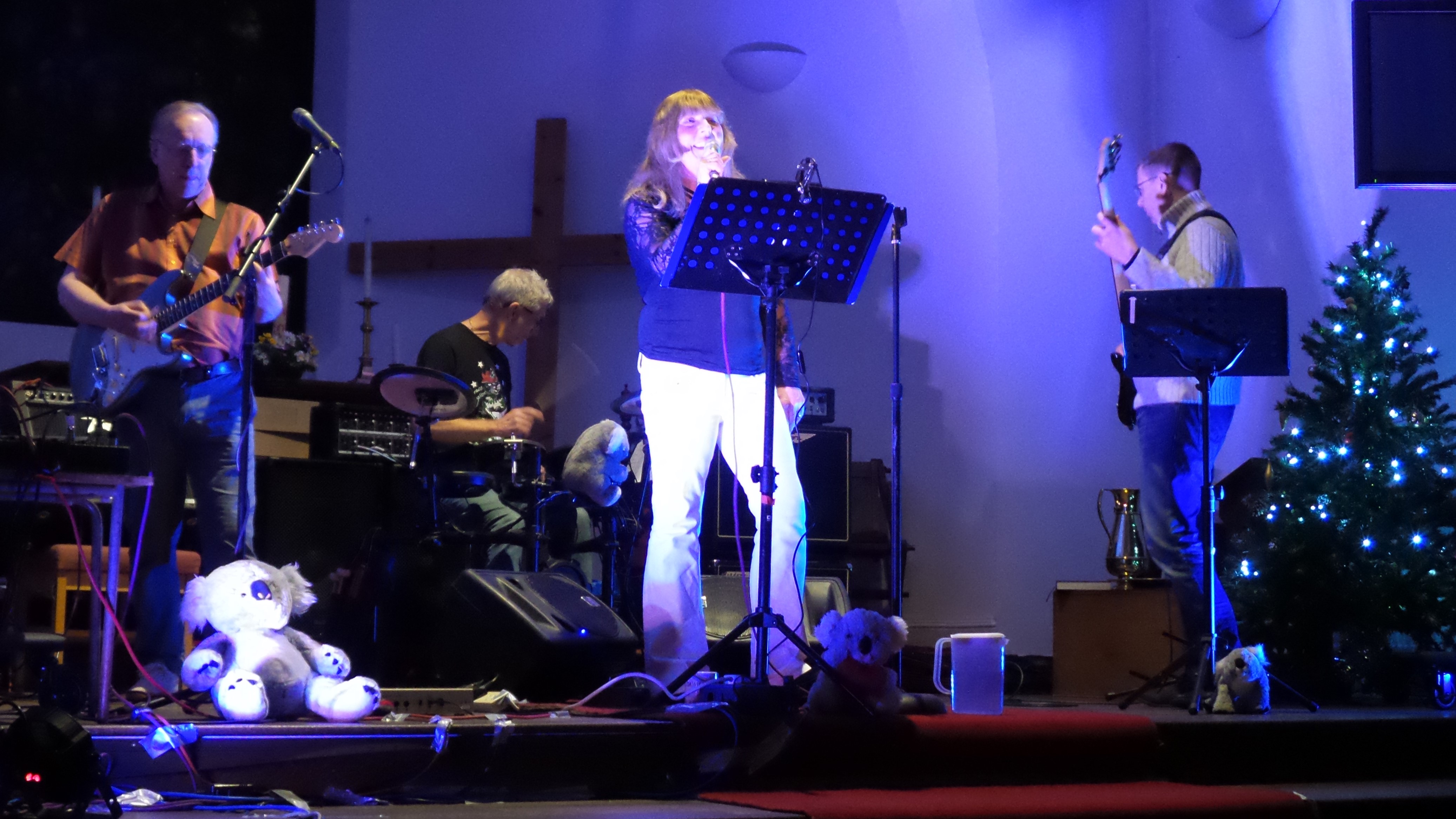
Do you have a hobby? If not, perhaps take inspiration from the clergy in this article and start something new!